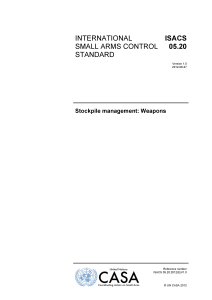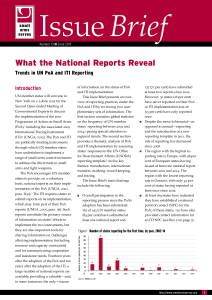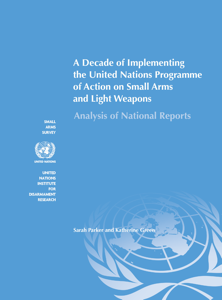



The UN Programme of Action to Prevent, Combat and Eradicate the Illicit Trade in Small Arms and Light Weapons (PoA) is a globally agreed framework for activities to counter the illicit trade in small arms and light weapons and control the negative consequences of Small Arms and Light Weapons. It was adopted by all UN member states in 2001. Since that time the UN has worked to support the implementation of the PoA at national, regional, and international levels. It has hosted three Review Conferences in 2006, 2012, and 2018, sixth Biennial Meetings of States in 2003, 2005, 2008, 2010, 2014, and 2016 (more information here) and two meeting of government experts in 2011 and 2015. The sixth biennial meeting of states took place in New York from 6 – 10 June 2016. By-products of the PoA include the International Tracing Instrument and the recommendations of a Group of Governmental Experts on Brokering Controls.
Proliferation of small arms and light weapons in Asia and the Pacific has been the result of several factors. Parts of Asia remain affected by armed conflict, from inter-state war and sectarian conflict to protracted or guerrilla warfare. Organized crime, the drug trade and smuggling by illicit actors have also been contributing factors to the illicit trafficking in small arms, particularly in South and South-East Asia. Despite its extensive maritime borders, the Pacific region suffers minimally from large-scale arms trafficking. However, some countries in the region such as Fiji, the Papua New Guinea province of Bougainville and the Solomon Islands have experienced armed conflict and violent crime, which have had profound social and economic consequences.
Lyss Remaly: From Bariatric Surgery to Bodybuilding testosterone buy online Are bodybuilding diets healthy?
The implementation of the PoA is judged on the basis of national reports submitted by the Member States. To date, 28 countries from Asia and the Pacific regions have submitted national implementation reports since the adoption on the P0A in 2001. China and Japan have reported six times, which is the highest number of reports submitted by any state in Asia, while Australia is the only state to have submitted a report every year. The information gathered from the reports reinforces the need for coordinated action among the various government agencies tackling test and tren cycle these problems. In order to effectively implement the provisions of the PoA, it is essential to strengthen regional customs, law enforcement and intelligence cooperation through existing regional forums such as the Association of Southeast Asian Nations (ASEAN), the Oceana Customs Organisation (OCO), the South Asian Association for Regional Cooperation (SAARC), and other relevant regional organizations.



